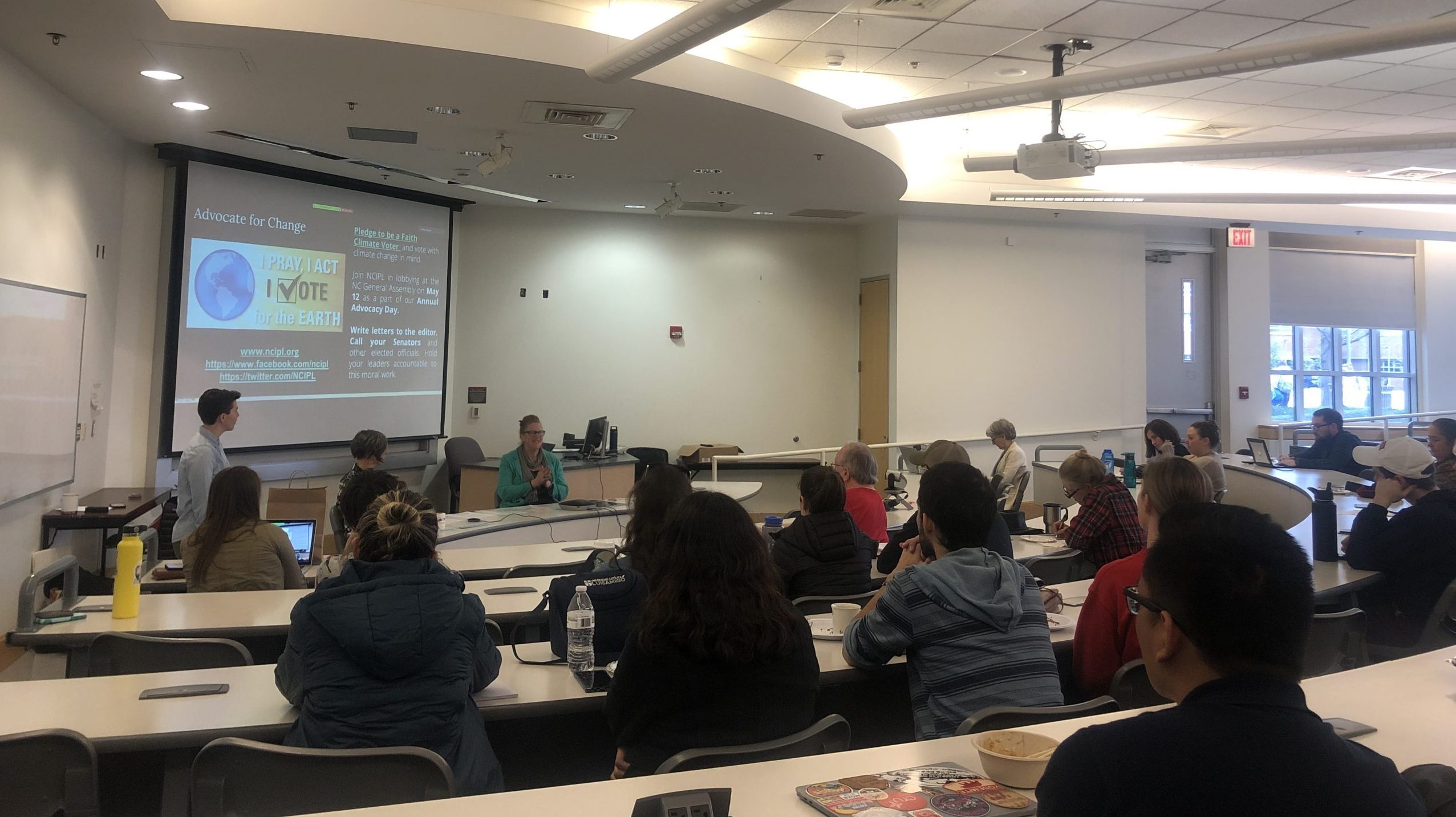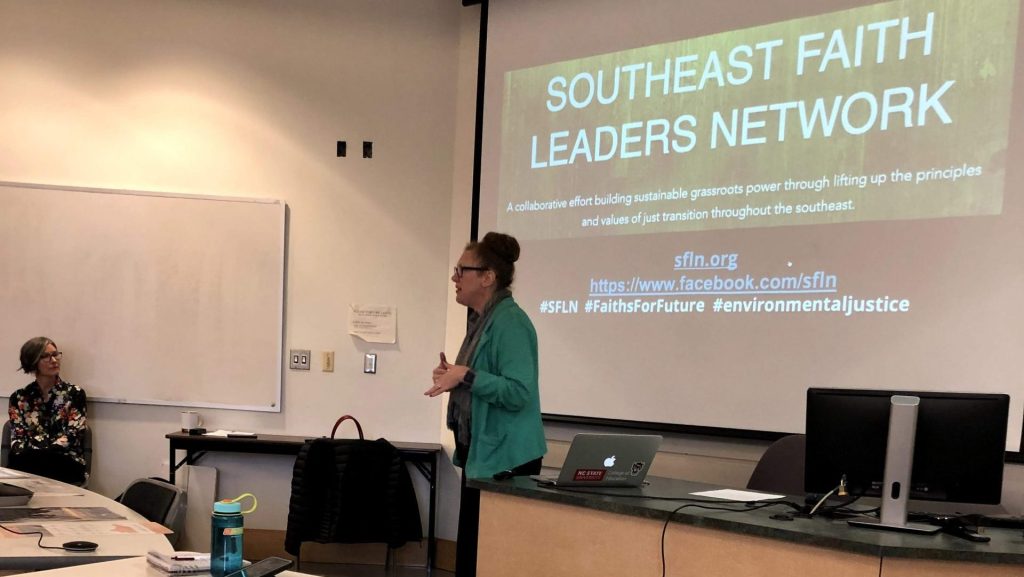Global Change Seminar Summary – Faith and Reasoning in Climate Change Views

This seminar was hosted by our 2019-2020 cohort of Global Change Fellows on March 6, 2020. The discussion was moderated by Global Change Fellow, Rachel Sussman and the following post was written by Global Change Fellow, Ana Meza Salazar.
View a recording of the presentation.

Panelists:
Dr. K.C. Busch, Assistant Professor, NC State Department of Education
Reverend Susannah Tuttle, Director, NC Interfaith Power & Light
Join us for a discussion of two unique perspectives on the frameworks that individuals use to grapple with climate change. Understanding the impacts of reason- and faith-based modes of thinking on climate acceptance will allow scientists, educators, and advocates to have more productive conversations about contentious climate issues.
Youth reasoning about climate change
Dr. K.C. Busch
The presentation began by introducing an interactive polling app so that the audience could contribute to the discussion. Throughout her presentation, Dr. Busch asked questions about public and youth perceptions of climate change that the audience answered through the app.
Dr. Busch presented her research comparing the perceptions of climate change for teachers and young students. Students emphasized the current negative effects of human-caused climate change on Earth’s physical systems on a global scale. They highlighted distant things that happen to other people and not necessarily related to them. Teachers, meanwhile, emphasized the scientific facts and statistics of climate change. Further questioning of the students revealed that they were very confident that humans cause climate change and their thinking was primarily influenced by parents and teachers. Dr. Busch then identified the primary impetus for taking actions to address climate change as social norms. Although more than half of Americans recognize anthropogenic climate change as an important issue, less than half of Americans perceived the importance of social norms in precipitating climate action. She pointed to the role of social media in helping climate deniers, including influential politicians, amplify their opinions and skew the public perception of climate action norms.
Faithfully responding to the climate crisis
Rev. Susannah Tuttle
Reverend Tuttle began by sharing her background and experiences that led to her current position as director of the North Carolina Interfaith Power & Light. She then shared talking points and strategies for addressing “non-traditional” climate advocates. Rev. Tuttle emphasized the importance of framing climate issues in terms of protecting all the creatures on the planet who are loved by God when addressing religious audiences. When addressing these audiences, she explains the implications of environmental degradation and climate change and speaks about the moral responsibility of humans in caring for the environment and each other. The current environmental crisis, she tells them, is an issue of faith because it stems from the human disconnect from the natural world. To end her presentation, Rev. Tuttle spoke about her involvement with several climate organizations, including the NC Interfaith Power and Light, the Leaders Network, Climate Action Network (USCAN), and the Leaders’ Initiative. In the following panel discussion, Rev. Tuttle described resources for those interested in climate advocacy.
- Categories: